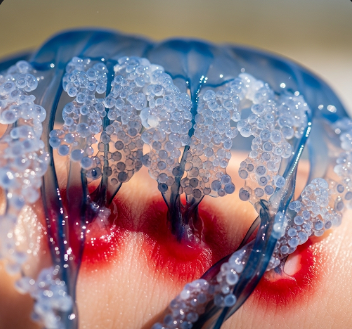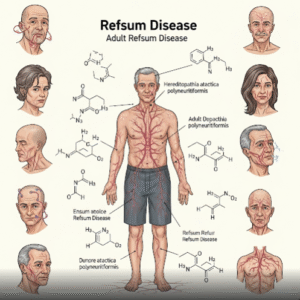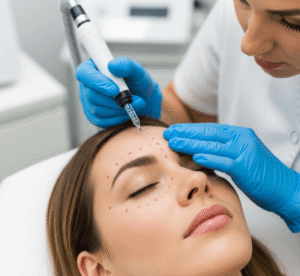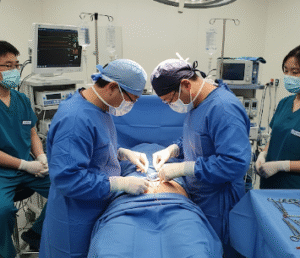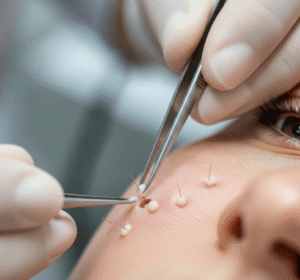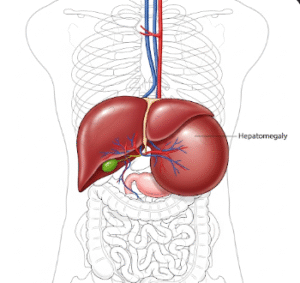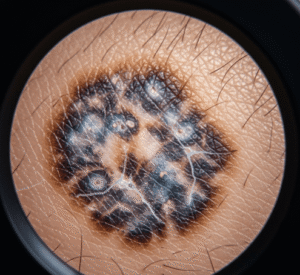Overview
Bluebottle stings are injuries caused by the bluebottle jellyfish, also known as the Portuguese man o’ war, commonly found in warm coastal waters. These stings can result in painful skin reactions, allergic responses, and in rare cases, systemic complications.
In Korea, although bluebottles are not as common as in tropical regions, marine stings still occur in the southern and coastal areas. Korean hospitals, especially in coastal cities, provide rapid emergency care, antivenom treatments, and symptomatic management to reduce pain and prevent complications. Awareness and first aid knowledge are crucial for swimmers, divers, and coastal workers.
What is a Bluebottle Sting?
A bluebottle sting occurs when a person comes into contact with the tentacles of the bluebottle jellyfish, which contain venom-filled nematocysts. The venom is designed to paralyze prey but can affect humans, causing:
- Immediate pain and redness at the site of contact
- Linear welts or whip-like marks on the skin
- Localized swelling, burning, or itching
Bluebottle stings are usually non-fatal, but severe reactions may occur in sensitive individuals, including allergic responses or cardiovascular symptoms.
Symptoms
Symptoms can appear immediately or within minutes after the sting:
- Intense pain or burning at the contact site
- Red or purple linear welts, sometimes forming a whip-like pattern
- Swelling or blistering of affected skin
- Itching and tenderness
- Nausea, vomiting, or headache in more severe cases
- Muscle cramps, dizziness, or fainting if venom enters circulation
- Allergic reactions such as hives, difficulty breathing, or anaphylaxis in sensitive individuals
Causes
Bluebottle stings are caused by direct contact with the jellyfish tentacles, which release venom through specialized cells called nematocysts. The venom contains proteins and toxins that affect the skin and, occasionally, systemic organs.
Common situations leading to stings include:
- Swimming in coastal waters where bluebottles are present
- Handling washed-up jellyfish on beaches
- Contact during water sports, diving, or fishing
- Accidental brushing against tentacles in shallow waters
Risk Factors
- Swimming or wading in coastal waters known to have jellyfish
- Lack of protective clothing such as wetsuits
- Handling or touching jellyfish on beaches
- Previous allergic reactions to jellyfish stings
- Children and elderly individuals, who may be more sensitive to venom
- Medical conditions such as asthma, which can worsen systemic reactions
Complications
Although most bluebottle stings are mild, complications may include:
- Secondary infection from scratching or open blisters
- Allergic reactions or anaphylaxis in sensitive individuals
- Severe systemic symptoms such as fainting, hypotension, or muscle cramps
- Persistent skin discoloration or scarring in severe cases
- Delayed hypersensitivity reactions in some patients
Prevention
Preventive measures focus on avoiding contact with the jellyfish and reducing sting severity:
- Avoid swimming in areas with visible jellyfish or bluebottle warnings
- Wear protective clothing, such as wetsuits, gloves, or stinger suits
- Do not touch jellyfish, even if they appear dead on the shore
- Pay attention to local beach safety alerts in Korea
- Educate children and coastal workers about jellyfish hazards
- Carry a first aid kit for marine stings when visiting beaches
Treatment Options in Korea
First Aid
Immediate first aid can reduce pain and prevent complications:
- Remove tentacles carefully using gloves or a towel; avoid bare hands
- Rinse with vinegar to neutralize nematocysts
- Avoid fresh water, as it may trigger further venom release
- Immobilize the affected area to reduce venom spread
- Apply cold packs to relieve pain and swelling
Medical Management
- Pain relief: Analgesics or topical anesthetics may be applied
- Antihistamines: Reduce itching and allergic reactions
- Corticosteroid creams: For severe inflammation or persistent swelling
- Antibiotics: Only if secondary infection occurs
Emergency Care
- Anaphylaxis management: Epinephrine injection, oxygen therapy, and intravenous fluids for severe allergic reactions
- Hospital monitoring: In cases of extensive stings, systemic symptoms, or cardiovascular effects
- Specialist consultation: Dermatologists or toxicologists for severe or unusual reactions
Supportive Care
- Follow-up care: Monitor healing, prevent infection, and manage residual scarring
- Patient education: Recognize signs of delayed reactions or complications
- Avoid repeat exposure: Counsel on safe swimming practices and marine awareness
Prognosis
The prognosis for bluebottle stings in Korea is generally excellent, especially with prompt first aid and medical care:
- Mild stings usually resolve within a few hours to days without long-term effects
- Moderate stings may cause blisters or persistent pain but heal fully with supportive care
- Severe allergic reactions can be life-threatening if untreated, but Korean emergency care provides effective intervention
- With preventive measures and proper management, patients typically recover fully without permanent complications

